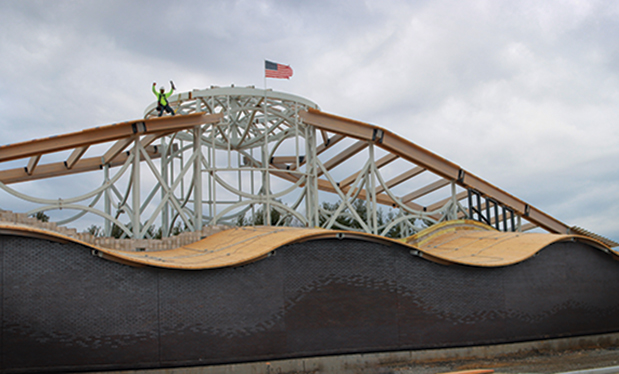
Editor’s note: This article is for general educational purposes only and does not constitute legal advice.
During the past several years, the construction industry has experienced a significant shift toward sustainability driven by consumer demands related to environmentalism and resource conservation. This shift especially is evident in the roofing industry where innovative materials and practices are being adopted to meet demand. However, unsubstantiated claims about sustainability can harm companies’ reputations and, ultimately, lead to costly lawsuits; this practice is known as greenwashing and should be avoided.
Eco-friendly roofing
The roofing industry has long relied on traditional materials, such as asphalt shingles, that have not historically been considered environmentally friendly. However, the industry has begun embracing sustainability and been motivated by a growing awareness of the environmental effects of traditional roofing materials, including their effects on increased temperatures, energy consumption and waste.
Regulations and cultural pressure also have precipitated this shift. For example, New York City has set new emissions standards for buildings larger than 25,000 square feet. Property owners must meet those requirements in the coming years or face fines. In addition, California has enacted emissions standards for buildings that are 50,000 to 100,000 square feet. California also requires the benchmark of zero net energy for all new commercial construction projects by 2030. Zero net energy means a building must consume energy that is less than or equal to the amount of renewable energy generated on-site.
To accommodate these changes, manufacturers have designed environmentally friendly construction materials to minimize environmental effects while still offering energy efficiency, durability and appealing aesthetics. Some of the most prevalent roofing examples include the following:
- Solar roofing integrates photovoltaic cells into roofing materials, enabling buildings to generate electricity from sunlight. Solar roofing materials reduce the need to use nonrenewable sources and lower greenhouse gas emissions.
- Vegetative roofs are popular in urban areas. Covered in vegetation, the roofs absorb rainwater, reduce runoff and provide insulation, which can result in energy savings.
- Cool roofs are specifically designed to reflect sunlight and absorb less heat than those made from traditional materials. They can decrease the need for air conditioning, leading to lower carbon emissions and energy use.
- Recycled roofing materials are made from materials such as recycled rubber, metal and plastic. This option diverts waste from landfills and reduces the need to produce new material, which aids in waste reduction and resource conservation.
Greenwashing
As the demand for sustainability grows, so does the risk of greenwashing, which occurs when businesses make exaggerated or misleading claims about the environmental advantages of their products and services. Environmentalist Jay Westerveld first used the term in the mid-1980s when referencing hotels’ “save a towel” campaigns, which urged customers to use fewer towels to help protect the environment. It was revealed the only tangible result of the effort was lower laundry costs.
In the years since, automakers, clothing manufacturers, oil companies and others have inadvertently or purposefully engaged in greenwashing. Consumers in nearly every industry are demanding more sustainably produced offerings, and big businesses are responding. But instead of adopting climate-friendly practices, they might merely be using messaging that implies their products are sustainable to appease their customers. Terms such as “natural” or “earth-friendly” may seem innocent enough, but if there is no data to support those labels, customers can lose trust in the companies that tout them.
As environmental regulations become stricter, the roofing industry is feeling the pressure to meet aggressive benchmarks. As such, architects, owners and contractors often make material and design choices based on environmental factors. In turn, manufacturers and contractors may advertise their offerings with vague terms such as “green,” “carbon friendly,” “carbon neutral” or “environmentally friendly.”
Most greenwashing lawsuits involve companies using these terms with minimal meaningful data to back them up. Litigation also may focus on companies falsely certifying their products or failing to be transparent in communicating the environmental impacts of their products.
When the term greenwashing was first coined, most lawsuits were spearheaded by government regulators or environmentalists focusing on oil and gas companies. Now, consumers are filing claims alleging items they are buying are not as eco-friendly as the companies claimed. In addition, state governments are getting involved. For example, New York Attorney General Letitia James recently announced her office would be suing JBS, the world’s biggest meat company, for misleading its customers about its environmental commitments.
How to prevent greenwashing
Nearly every industry has been affected by greenwashing claims; however, to date, construction and roofing have not been targeted. Nevertheless, you would be wise to take steps to avoid future lawsuits. Consider these guidelines:
- Use data: Steer clear of using vague and unsubstantiated claims that your materials are “green” or “earth-friendly.” Instead, explain how your materials measure up based on an industry-relevant baseline. Present verifiable, measurable terms.
- Be wary of carbon offsets: Many companies meet environmental goals by purchasing carbon offsets. However, there have been claims of poor accounting and other suspicious practices that have led to greenwashing lawsuits. Carefully consider whether this approach could be detrimental to your company.
- Explain scope: If you claim a product has low or zero emissions, consider the full life cycle of its manufacturing. This includes who provided component parts, how the product was produced and how it is disposed. You can be accused of greenwashing if you imply the full life cycle when you intend only one part of it. Be specific when you make such claims.
- Be honest: Avoid the temptation to say anything to keep customers happy. If a clever label implies materials are sustainable but they actually are not, you may be setting your company up for failure. Your customers will come to distrust you, and your reputation will suffer. Although manufacturers provide statements and representations regarding sustainability and green initiatives, if you actively make similar statements during the sales process, especially related to performance, you and the manufacturer may be liable for misrepresentation.
To ensure your company is protected, evaluate the materials you install and be upfront about their benefits.
TRENT COTNEY is a partner and practice group leader at the law firm Adams and Reese LLP, Tampa, Fla., and NRCA’s general counsel.



